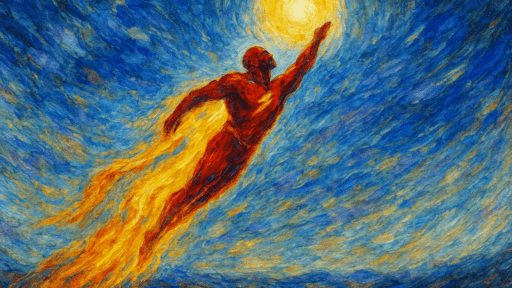“Not until we are lost do we begin to understand ourselves.”
Henry David Thoreau
Ah, have you ever walked down a winding path in the forest and noticed how the trees seem to close in around you? At first, it feels cozy, safe—a comforting embrace by mother nature. But walk further, and you’ll notice the path gets tighter, more constrained. You start to long for the open fields, for the expansive views, for the fresh breeze.
This is a story of a journey from the suffocating embrace of “The narrow way” to a broader, more inclusive path.
Imagine, if you will, wearing glasses with lenses that gradually narrow your field of vision over time. You start with a panoramic view, but slowly, your world narrows until all you can see is a tiny circle in front of you.
That’s how it felt for me in the Christian circles I was once a part of. We spoke of “The narrow way.” It was a road of right beliefs, right theology—the golden ticket to eternal life. The focus served me for a while—it gave me confidence and assurance. But it also made so much of life binary—dark and light, right and wrong, them and me.
The narrow path I knew wasn’t about doing good, it was about believing right. In fact, deeds were like window dressings—nice to look at, but not essential.
“It’s the narrow way of grace,” we’d say.
Grace: that unearned favor. Beautiful in concept—but in practice, it felt like a game of musical chairs—not everyone had a seat when the music stopped.
And as the circle of acceptable beliefs shrunk, the criteria for exclusion grew.
“It’s too bad they’re Catholic…” ❌
“It’s a shame they’re gay…” ❌
“I can’t believe they voted for Obama…” ❌
I once even found myself questioning someone’s “salvation” because they said the word “fuck” in a conversation. (to the unexposed, someone’s “salvation” is a dramatic way of saying someone is in or out of the Going to Heaven Club™.)
The narrow way focussed on refinement. It was adorned with self-improvement and self-examination—but always resulted in more ways to exclude, correct, and label others.
As if the label mattered more than love, more than action, more than impact. I spent so much time guarding my beliefs—making sure they were pristine, uncompromised, and undeniable. It felt like celebrating a beautiful garden for its fence and not its flowers.
But all of this couldn’t last forever, at leat not for me. Life doesn’t happen in a bubble. Beliefs don’t just impact those who hold them. And inevitably, I started asking myself questions.
Couldn’t faith be a living thing—adapting, growing, and reaching out?
What if I built bridges instead of clutching the keys to an invisible door?
What if being right was not only unimportant, but also an illusion?
My heart wasn’t yearning for the right path, but for a good purpose. And that purpose was not about holding the keys to an invisible gate, but about opening doors—right here, right now, for everyone.
Maybe the key to the narrow way was to open my heart wide.
Indeed, my heart’s true calling is not confined to a fixed path or a solitary doctrine. It’s an ever-evolving journey—an odyssey of love, compassion, and understanding. It seeks connection, not division—bridges, not barriers.
And so, my encouragement is this: belief is a compass, not a cage. It should guide us toward love and understanding, not confine us within walls of dogma. As we navigate life’s winding roads—our paths might differ, but our destinations share a horizon of hope and compassion.
Let’s be the explorers of this vast landscape of belief (or lack thereof), not just bystanders. Celebrate the diversity of thought, of culture, of beliefs. Hold out a hand, build a bridge, light a lantern. Because, at the end of the day, it’s not about finding the one right way—it’s about lighting the way forward for each other.
Embrace your journey, even the turns you regret. For in reaching out and opening doors, you find your own way and illuminate paths for countless others. Remember, every step you take in love and understanding creates ripples of change—forging a world where hearts, not just beliefs, converge.




